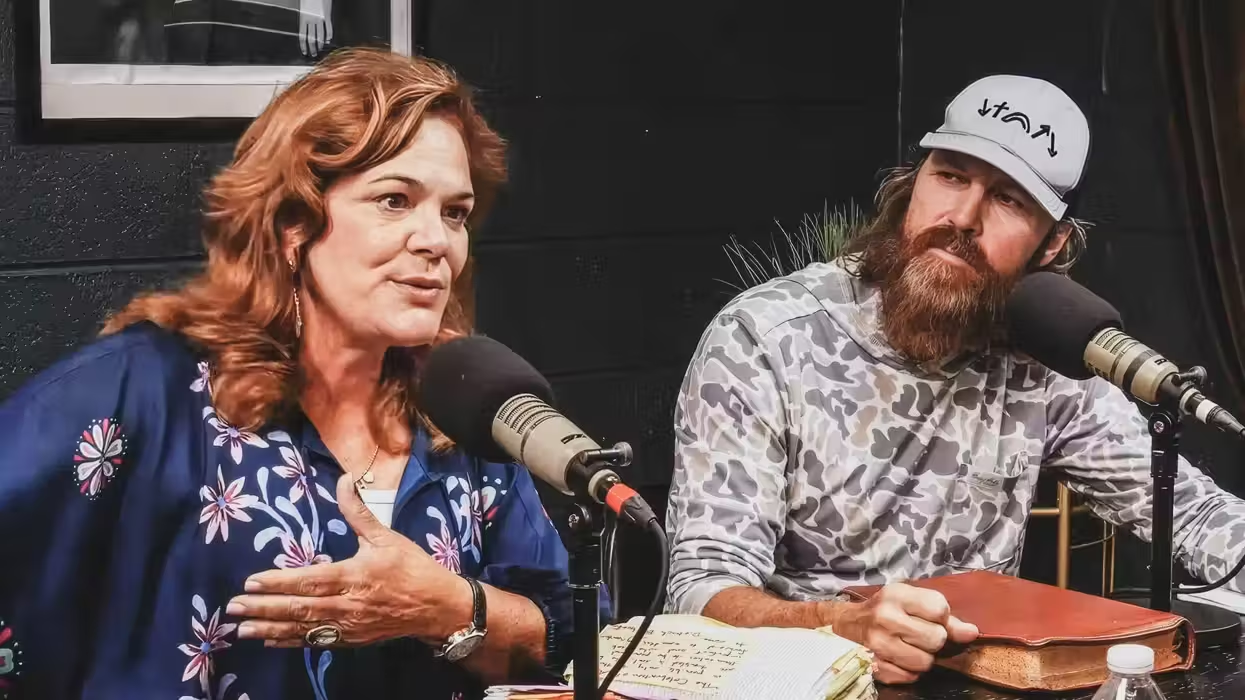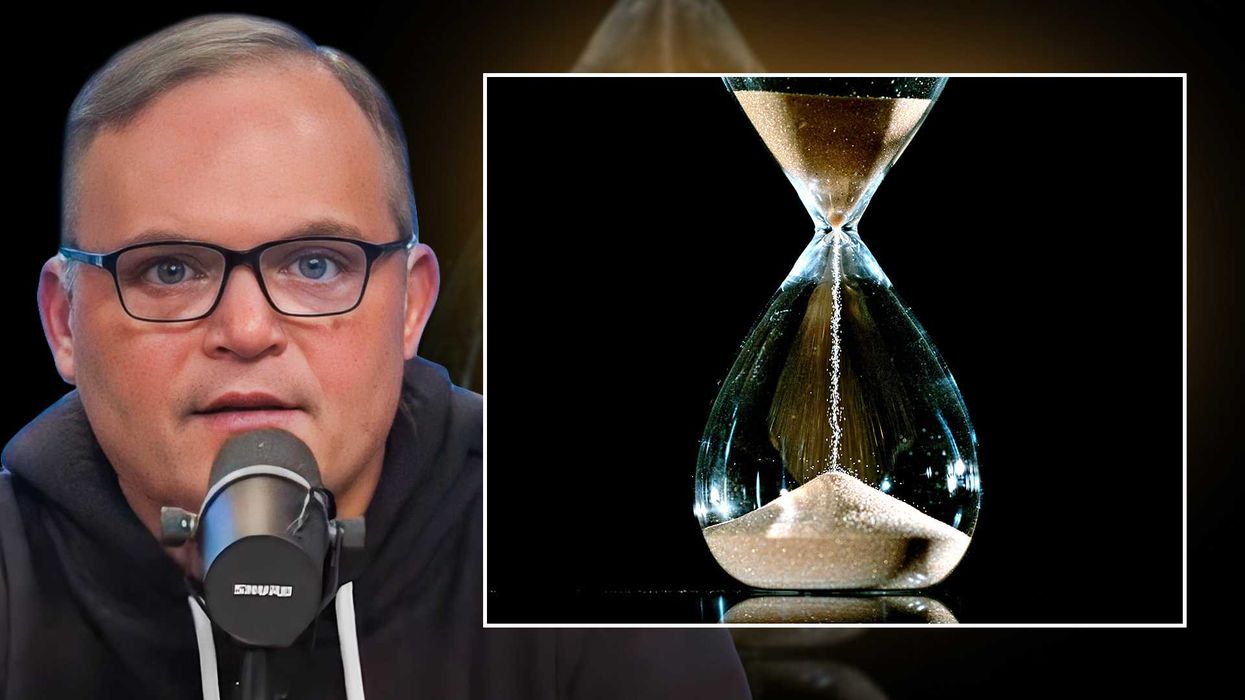
© 2026 Blaze Media LLC. All rights reserved.
the wife he churlishly but fondly called "Dingbat"
NEW YORK (TheBlaze/AP) -- Jean Stapleton, the stage-trained character actress who played Archie Bunker's far better half, the sweetly naive Edith, in TV's groundbreaking 1970s comedy "All in the Family," has died. She was 90.
Stapleton died Friday of natural causes at her New York City home surrounded by friends and family, her children said Saturday.
Little known to the public before "All In the Family," she co-starred with Carroll O'Connor in the top-rated CBS sitcom about an unrepentant bigot, the wife he churlishly but fondly called "Dingbat," their daughter Gloria (Sally Struthers) and liberal son-in-law Mike, aka Meathead (Rob Reiner).
Stapleton received eight Emmy nominations and won three times during her eight-year tenure with "All in the Family." Produced by Norman Lear, the series broke through the timidity of U.S. TV with social and political jabs and ranked as the No. 1-rated program for an unprecedented five years in a row. Lear would go on to create a run of socially conscious sitcoms.
Stapleton also earned Emmy nominations for playing Eleanor Roosevelt in the 1982 film "Eleanor, First Lady of the World" and for a guest appearance in 1995 on "Grace Under Fire."
Her big-screen films included a pair directed by Nora Ephron: the 1998 Tom Hanks-Meg Ryan romance "You've Got Mail" and 1996's "Michael" starring John Travolta. She also turned down the chance to star in another popular sitcom, "Murder, She Wrote," which became a showcase for Angela Lansbury.
"I wasn't a leading lady type," she once told The Associated Press. "I knew where I belonged. And actually, I found character work much more interesting than leading ladies." Edith, of the dithery manner, cheerfully high-pitched voice and family loyalty, charmed viewers but was viewed by Stapleton as "submissive" and, she hoped, removed from reality. In a 1972 New York Times interview, she said she didn't think Edith was a typical American housewife - "at least I hope she's not."
"What Edith represents is the housewife who is still in bondage to the male figure, very submissive and restricted to the home. She is very naive, and she kind of thinks through a mist, and she lacks the education to expand her world. I would hope that most housewives are not like that," said Stapleton, whose character regularly obeyed her husband's demand to "stifle yourself."
But Edith was honest and compassionate, and "in most situations she says the truth and pricks Archie's inflated ego," she added.
She confounded Archie with her malapropos - "You know what they say, misery is the best company" - and open-hearted acceptance of others, including her beleaguered son-in-law and African-Americans and other minorities that Archie disdained.
As the series progressed, Stapleton had the chance to offer a deeper take on Edith as the character faced milestones including a breast cancer scare and menopause. She was proud of the show's political edge, citing an episode about a draft dodger who clashes with Archie as a personal favorite.
But Stapleton worried about typecasting, rejecting any roles, commercials or sketches on variety shows that called for a character similar to Edith. Despite pleas from Lear not to let Edith die, Stapleton left the show, re-titled "Archie's Place," in 1980, leaving Archie to carry on as a widower.
"My decision is to go out into the world and do something else. I'm not constituted as an actress to remain in the same role.... My identity as an actress is in jeopardy if I invested my entire career in Edith Bunker," she told the AP in 1979.
She had no trouble shaking off Edith - "when you finish a role, you're done with it. There's no deep, spooky connection with the parts you play," she told the AP in 2002 - but after O'Connor's 2001 death she got condolence letters from people who thought they were really married. When people spotted her in public and called her "Edith," she would politely remind them that her name was Jean.
For years, she rarely watched "All In the Family," but had softened by 2000, when she told the Archive of American Television that enough time had passed.
"I can watch totally objectively," she said. "I love it. And I laugh. I think, `Oh,' and I think, `Gee, that's good.'"
An atypically emotional Archie cries over Edith's death in this moving scene:
Featured image via YouTube
Want to leave a tip?
We answer to you. Help keep our content free of advertisers and big tech censorship by leaving a tip today.
Want to join the conversation?
Already a subscriber?
Sr. Editor, News
Dave Urbanski is a senior editor for Blaze News.
DaveVUrbanski
more stories
Sign up for the Blaze newsletter
By signing up, you agree to our Privacy Policy and Terms of Use, and agree to receive content that may sometimes include advertisements. You may opt out at any time.
Related Content
© 2026 Blaze Media LLC. All rights reserved.
Get the stories that matter most delivered directly to your inbox.
By signing up, you agree to our Privacy Policy and Terms of Use, and agree to receive content that may sometimes include advertisements. You may opt out at any time.






